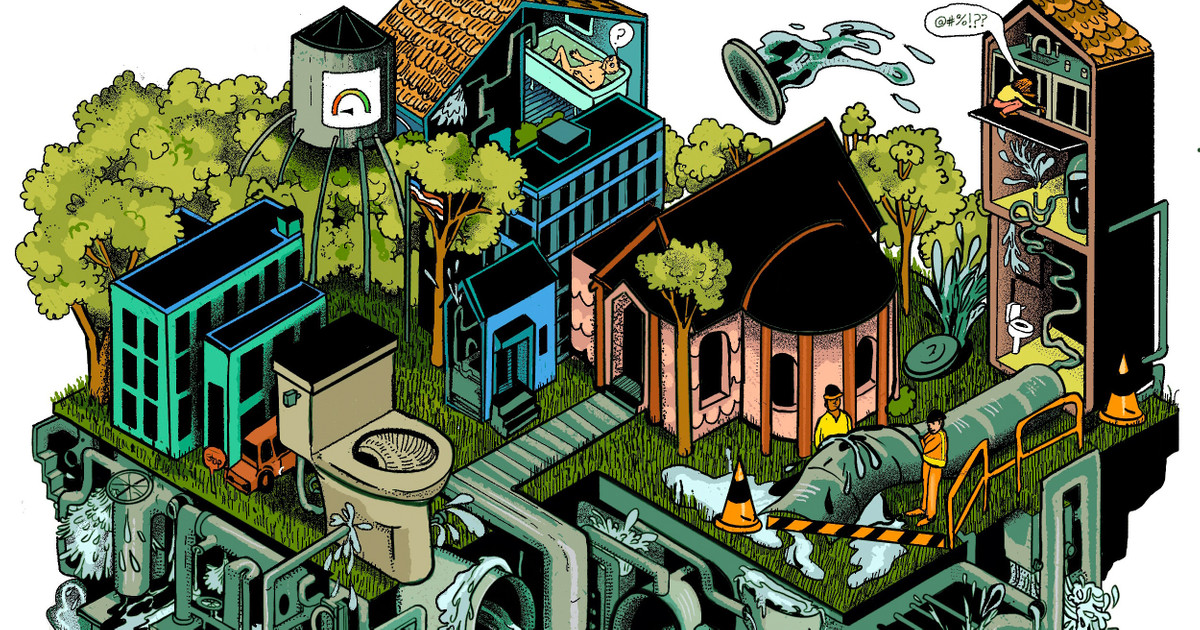Beneath the city of Jackson, Mississippi, is a Rube Goldberg-esque network of pipes that brings water to residents. The system, by one estimate, is twice as long as it should be for a city of this size. Much of it has been in disrepair for years; some parts are more than 100 years old.
Underground, broken pipes have spewed water into the surrounding earth or sent it bubbling up from cracked streets. For every gallon of water that reaches a customer’s tap, at least another gallon doesn’t, according to a June estimate from the manager of the water system.
Aboveground, the symptoms of those problems have been faucets that sputtered and toilet bowls that didn’t refill. Teenagers in the county’s juvenile-detention center were sent to other facilities to shower, one official said. Hospitals that regularly lost water built their own wells. Roughly every few days, people in one part of town or another have received notices telling them their water was unsafe to drink unless they boiled it first. At times, like for two weeks in the winter of 2021, many residents had no running water at all.
But for years, state employees inspecting Jackson’s primary water system noted few problems with the distribution system — the pipes that delivered water to its customers. In the 16 years before the system collapsed in 2022, leaving roughly 160,000 residents in and around Jackson dependent on bottled water for weeks, inspectors admonished the city just a couple times about the pipes underground. They identified issues with low water pressure just once and noted high water loss a few times. But they issued no formal reprimands or fines.


